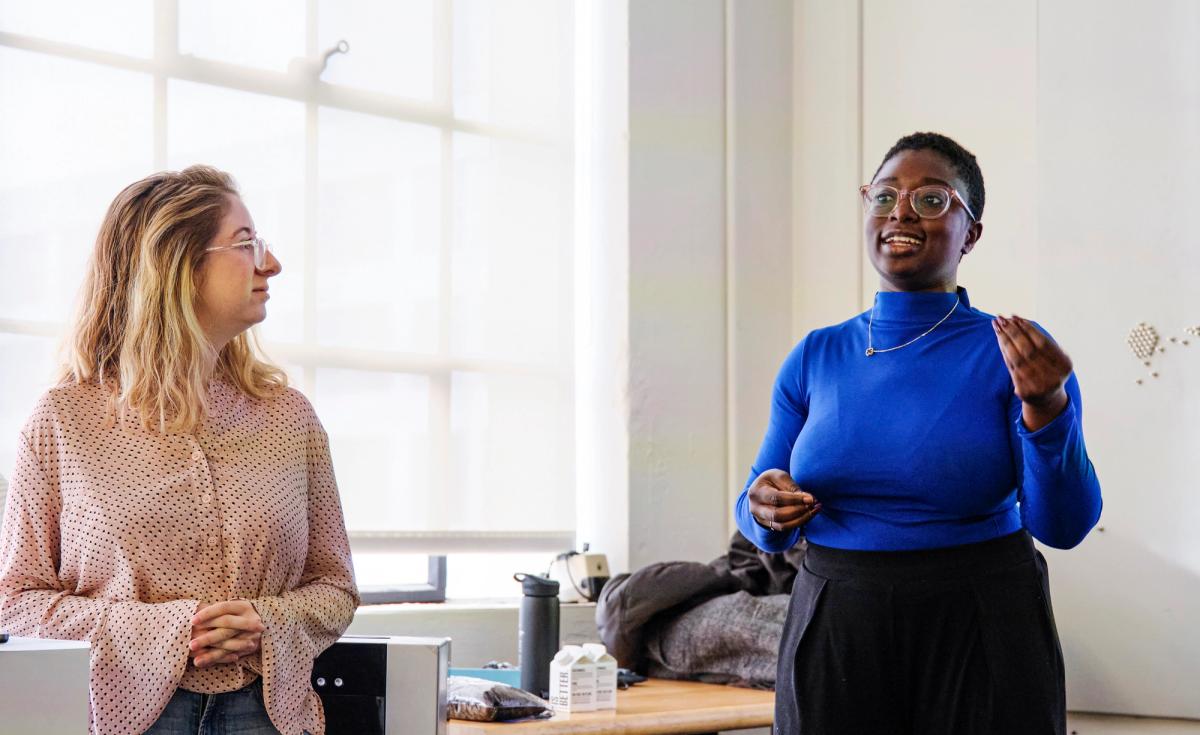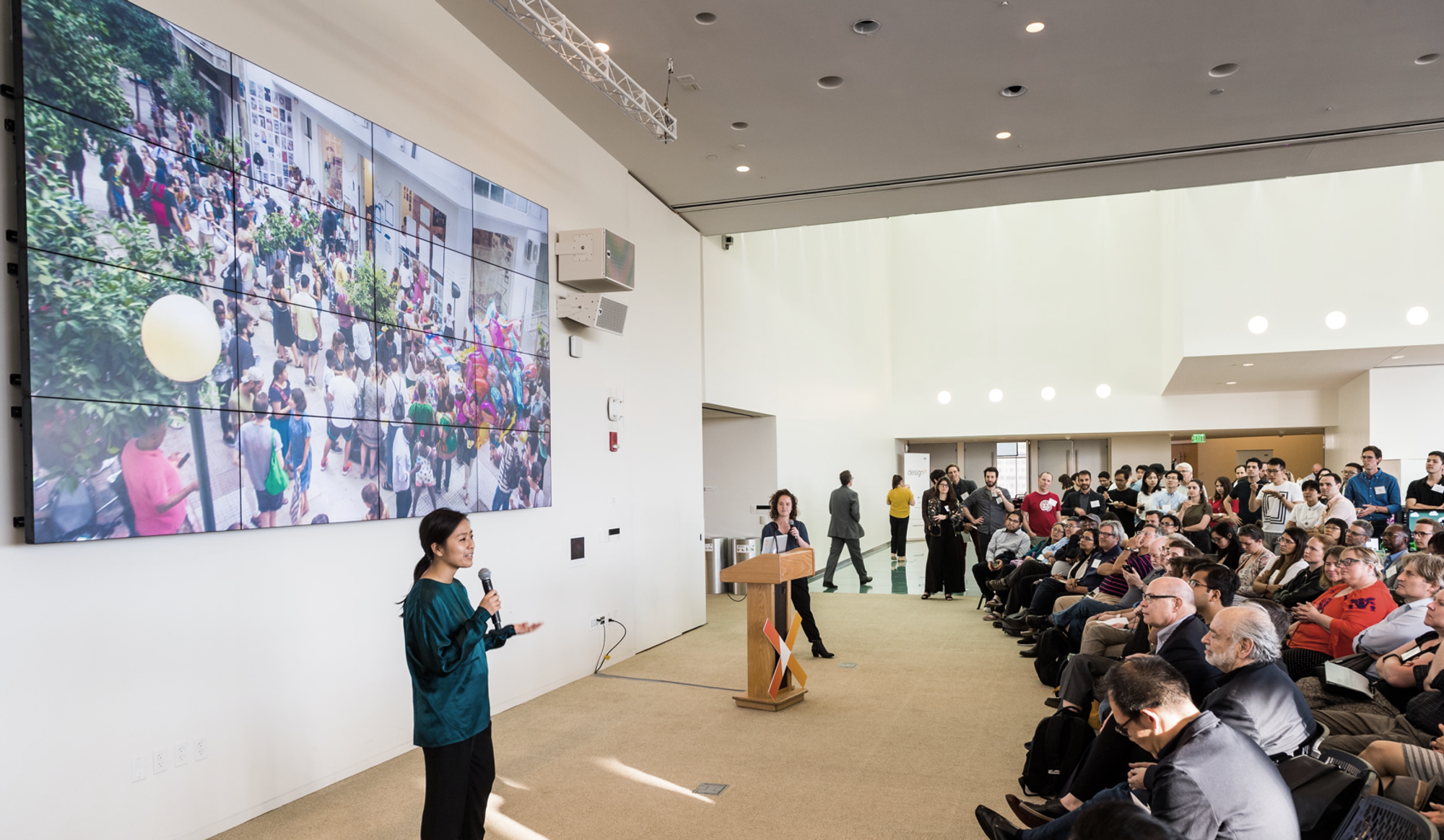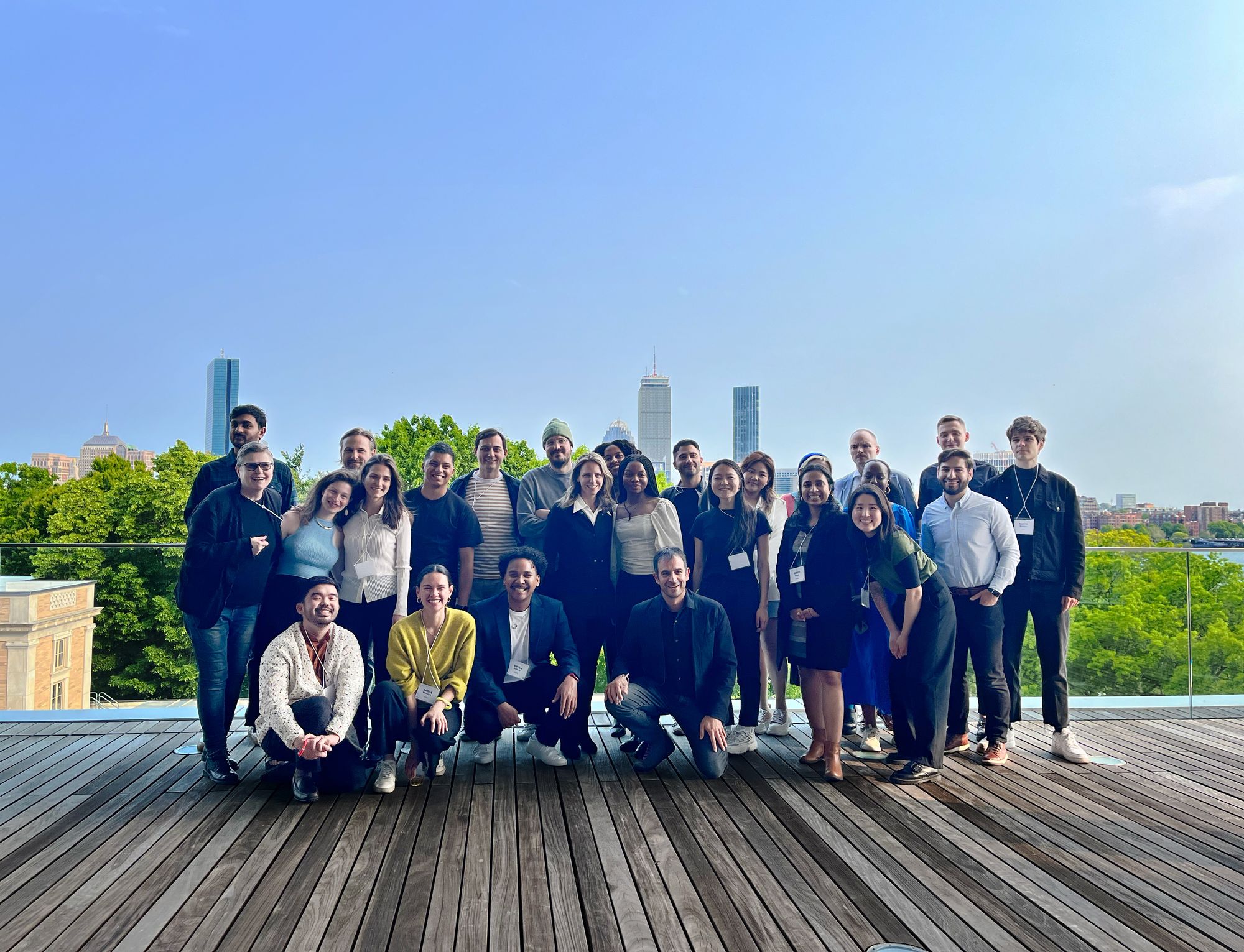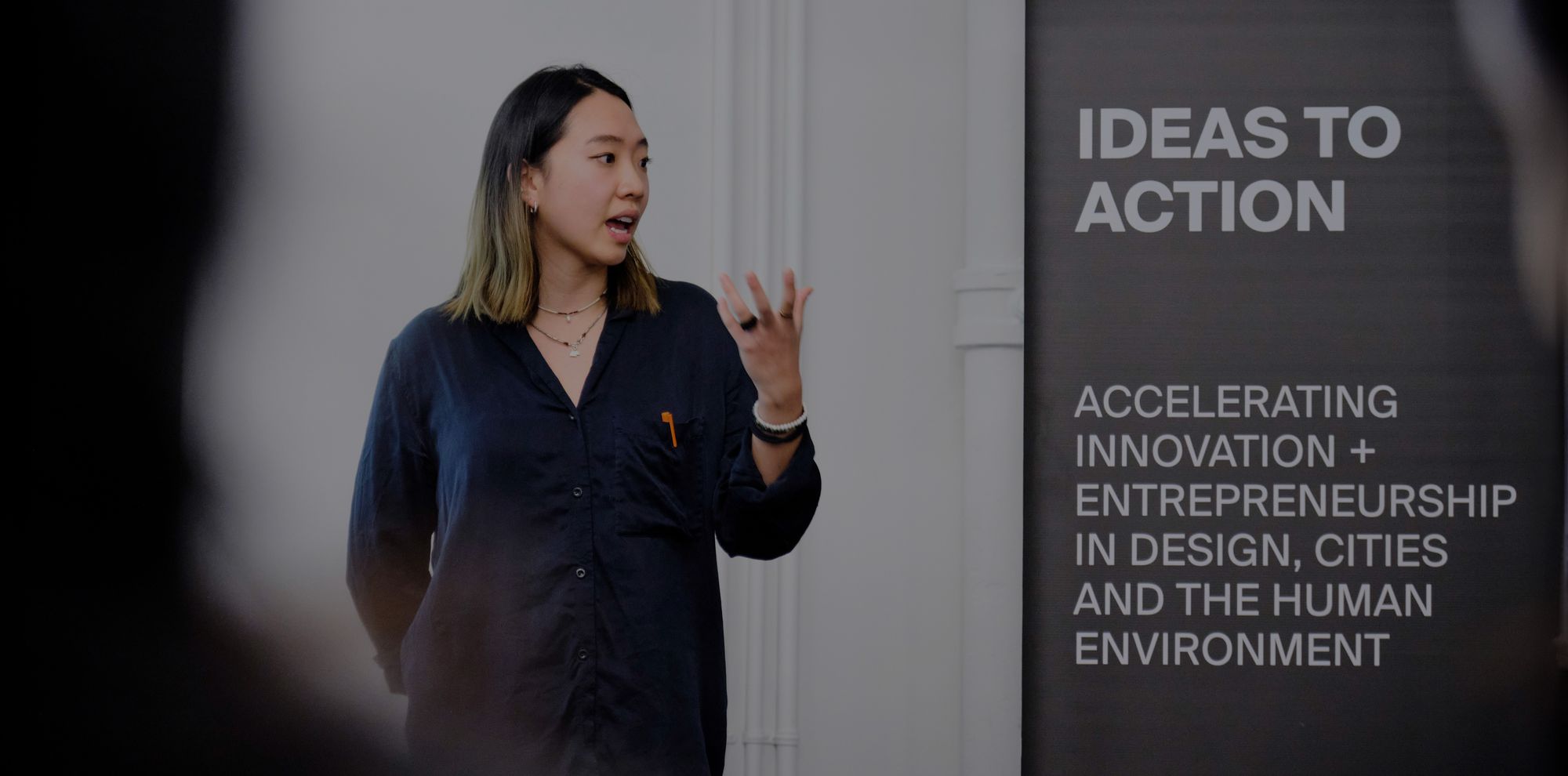From Insights to Impact: The MITdesignX 2024 Cohort Proposes Ventures for a More Sustainable World
Applying a rigorous framework grounded in design science research, MITdesignX demonstrates how entrepreneurs can benefit from a designer’s mindset. Each of the ideas proposed by this year’s cohort are motivated by positive social change and environmental resilience—but what does it really take to launch a successful venture?
By Matilda Bathurst
May 7, 2024
When teams are selected to participate in the MITdesignX venture accelerator, they can trust that their idea has the potential to generate meaningful change.
The competitive academic program, created in the MIT School of Architecture and Planning (SA+P) and now part of the MIT Morningside Academy for Design (MIT MAD), selects 10-12 teams annually on the basis of standout ideas that respond to the planet’s most urgent and complex challenges. Since the launch of MITdesignX in 2016, teams have tackled issues related to public health, social justice, city planning, and resource resilience, all set within the context of the climate crisis. Alumni of the program are already impacting the lives of over 100 million people, with thriving startups including Biobot Analytics, AirWorks, Hosta AI, and Tulu, among others. In addition to the venture design accelerator, MITdesignX runs international workshops and offers a selection of popular MIT courses focused on design innovation.
The teams for 2024 are representative of key factors of global sustainability, with ideas ranging from highly flexible modular bamboo shelters for displaced communities, to an ambitious strategy to eliminate the need for crop insurance.
Through a process focused on needs-based-testing research, experimentation, and iterative development, applying methods drawn from design practices, the original proposal is refined down to its most effective form. Only then is the venture considered ready to seek funding, and potentially to scale.
This year, there’s an emphasis on democratizing AI technology for human health, as applied to healthcare access, personalized tracking, and product design. Intended for immigrants navigating the U.S. healthcare system, BridgeHealth AI seeks to connect underserved families with medical practitioners. Empati, a hormone-tracking app for women's reproductive health, originally designed for use in Indonesia, capitalizes on the fact that most women in the region have access to a smart phone – even if they don’t have access to a gynecologist. And while programmable mattresses might typically be marketed as a luxury product for sleep optimization, TOPPA highlights a more critical need: eliminating the unnecessary deaths of patients in hospitals due to bedsores. Could mattress-top micromovement be the solution?
The reframing of new technologies for the purpose of humanitarian impact is indicative of the program’s exacting selection process. “It’s not enough just to invent – to push the boundaries of science and technology,” reflects Faculty Director Svafa Grönfeldt, a venture designer with a background of launching global life science companies.
The program naturally lends itself to projects that fuel the circular economy, and another recurrent theme is waste and environmental sustainability. COBI wants to make our houses work harder for us – combining skillsets of architectural design and materials science, the team is developing a prototype for natural, reusable construction panels integrated with carbon sequestering technology. MagicNC are using machine learning to dramatically reduce the machine time needed for the production of complex tools and products; if successful, the team’s AI-driven system could significantly reduce energy consumption. Cortado (previously Coffee Factory) is an example of those bright ideas that arise when you’re free-associating over breakfast – what if used coffee grinds could be converted to valuable materials, creating a new market while lowering carbon emissions?
Based on a four-phase framework of Understand; Solve; Envision; Scale, a unique curriculum has been co-created by MITdesignX Founder and Chair Dennis Frenchman, Svafa Grönfeldt, and Executive Director Gilad Rosenzweig, MCP ’13, as well as a support network of faculty members, alumni, and entrepreneurs in residence. Design as a methodology for venture development is framed as a science; a way of thinking that mediates between the imaginative capacity to project possibilities, and an empiricism anchored by data collection, analysis, and the testing of hypotheses.
says Rosenzweig. “However, ultimately we all share a designer’s mindset, and that makes way for unforeseen solutions. Rather than jumping straight to envisioning the product or strategizing how to fundraise, the initial phases of the program are dedicated to context investigation and personal introspection. We want each team member to be able to identify exactly why this venture really matters to them, and its potential consequences for all potential stakeholders – including populations who may be adversely affected, as well as those who stand to benefit. It’s crucial to understand that no solution, no venture, happens in a vacuum.”
This awareness of systemic impact is highlighted by projects exploring more equitable approaches to collective life and decision making. Civic Leaders of Today is an initiative to train middle-manager government practitioners in the soft skills required to build progressive policies and programs, thereby reducing bureaucratic fatigue and cultivating a sense of shared purpose. Harnessing the potential of new digital visualization tools, Mí.Katã is working on a new community-led participatory design process to bring greater inclusivity to the planning of urban development projects. Designed as a hyperlocal digital platform, ONE Community seeks to support the organic processes that strengthen informal settlements in fast-gentrifying areas, fostering economic resilience by connecting small businesses, consumers, and allied enterprises.
It takes courage and humility to expose your great idea to continual critique, even abandoning the original premise or pivoting if the venture isn’t meeting the triple bottom line of financial, social, and environmental sustainability. The MITdesignX emphasis on clearly understanding the “why” before the “how” enables teams to work with an end in sight from the very beginning of the program, troubleshooting for obsolescence long before the venture enters the market-driven mill of creative destruction.
A clear sense of the stakes is particularly strong in the case of projects motivated by existential risk, envisioning a future where disaster preparedness is increasingly part of everyday life. The adaptable prefabricated bamboo shelters proposed by BendShelters are initially planned for deployment in Myanmar, where there is a growing population of internationally displaced people – but the venture has the potential to scale to any location where bamboo is readily available. In response to supply-chain disruptions and increased risk of extreme weather events due to climate change, Numanac proposes a predictive production solution to manage food security. What if controlled-environment, AI-regulated agriculture facilities could be constructed to protect the most vulnerable crops – expensive in the short term, but ultimately more cost-efficient than the U.S. policy of crop insurance? At a smaller scale, pinpointing the management of disasters down to individual safety, BosaiPlus+ is designing a line of wearable objects that double up as tech-enabled protective devices – from a ring with a whistle function for sending emergency signals, to a tote that changes color when exposed to high UV radiation.
At root, Frenchman, Grönfeldt, and Rosenzweig share a hardwired optimism that foregrounds the entrepreneurial potential of all those they work with, an attitude that has its roots in the founding insight of the program. Frenchman, now professor post-tenure at SA+P, observed that his colleagues and students were distinctly socially and environmentally conscious, with research initiatives and seminars generating fertile ground for enterprising ideas. However, without an intentional structure and business model to convert those ideas into practical initiatives, potential ventures risked being lost in the context of the institution. MITdesignX was founded in 2016 with the initial goal of empowering members of SA+P with the tools, training, and network to implement the ideas sparked by their research, demonstrating that ideation needn’t exist solely as a thought experiment. It’s an attitude that has enabled MITdesignX to branch out to participants from across the MIT community, and the program’s global reach has recently expanded with seven international workshops.
For the participants, a primary differentiating factor of the program is the steadfast commitment to stay with the questions and remain in the problem space. “MITdesignX is a mental gym, pushing us to think critically about the ‘why’ and the ‘how’ in ways that other startup accelerators don’t often allow for,” says Mariama N’Diaye, part of team Civic Leaders of Today.
N’Diaye’s initiative for MITdesignX is complemented by her experience with MAD as a 2022 Design Fellow, in collaboration with the MIT GOV/LAB, where her project involved identifying how human-centered design could support government practitioners in Nigeria and Sierra Leone. Jenny Cang, a 2023 Design Fellow, is a member of team Cortado (previously Coffee Factory) and an MBA candidate at MIT Sloan School of Management who has benefited from being plugged into the MITdesignX entrepreneurial ecosystem.

“MITdesignX is a mental gym, pushing us to think critically about the ‘why’ and the ‘how’ in ways that other startup accelerators don’t often allow for,” says Mariama N’Diaye (right), part of team Civic Leaders of Today.
MIT is all about ‘mind and hand,’” says Cang. “Having taken entrepreneurship and design classes at Sloan, my team and I are now putting what we’ve learned into practice. We’ve been able to connect to mentors with a wide range of industry expertise, and Svafa and Gilad have been tremendously helpful in equipping us with tools to articulate gaps in the market and uncover insights from prototyping interviews, supporting us through the challenging process of idea pivoting.
In the coming months, the teams will discover whether their venture is ready to launch into the marketplace. However, that isn’t the program’s sole measure of success.
Free from the pressure of a narrow definition of success, the teams are able to focus their full attention on sounding out the true scope of their idea. For N’Diaye, this comes back to the skill of getting comfortable with unknown outcomes. “Some of us will set out to build transformable ventures,” she reflects. “Others will do so within existing institutions. All of us will advance our fields dramatically with the tools that MITdesignX has provided us.”
Links
Related News
Related Events

MITdesignX Pitch Day

MITdesignX Pitch and Demo Day 2023

